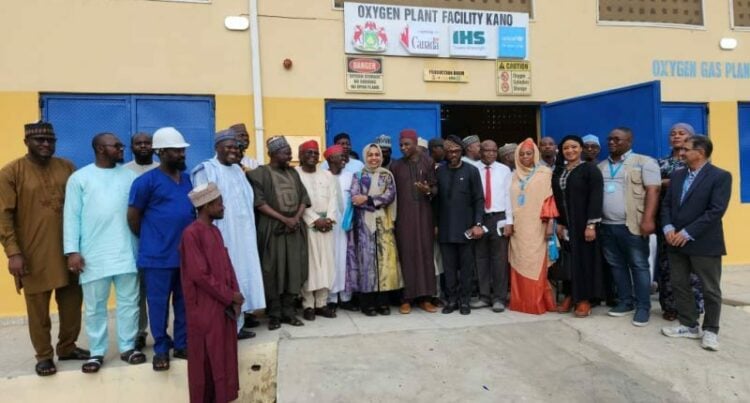The United Nations Children Fund (UNICEF), in collaboration with the governments of Canada, Norway, and IHS Towers, has handed over a state-of-the-art solarised oxygen production plant to the Kano State government.
At the inauguration of the facility located at the Muhammadu Buhari Specialist Hospital in Kano, UNICEF representative to Nigeria, Ms. Wafaa Saeed, described it as “a beacon of innovation and resilience” that will save countless lives.
She said the solar-powered plant will address critical oxygen shortages, particularly for newborns and children with pneumonia and respiratory illnesses.
She explained that the facility will ensure a reliable oxygen supply even during power outages and will provide a model for similar initiatives across the country.
In his remarks, Dapo Otunla, senior vice president of IHS Towers Nigeria, said the facility was part of a nationwide project to strengthen the oxygen supply for hospitals.
“What we witnessed today is the product of a partnership we announced with UNICEF in 2022 to strengthen oxygen supply for treating pneumonia, COVID-19, and other hypoxia disorders, particularly among newborns and pregnant women.
“The programme has installed nine oxygen plants across Nigeria in Rivers, Bauchi, Kaduna, Ebonyi, Cross River, Yobe and Kano States.
“The plants became operational in March 2024 and have produced more than 103,000 litres of medical oxygen, serving an estimated 1,500 to 2,500 patients monthly.
“This initiative not only strengthens healthcare systems but also demonstrates the power of collaboration in advancing SDG 3 – good health and wellbeing,” Otunla said.
In a related development, the UK government, through the Foreign Commonwealth Development Office(FCDO), in partnership with UNICEF, also handed over 55 climate-resilient facilities to the state, comprising 27 primary healthcare centres and 28 schools across the state.
Speaking during an official handing-over ceremony at Wangara Primary School in Gezawa local government area, the UNICEF representative said the projects were successfully carried out in close collaboration with the state government over the last year.
She explained that the facilities incorporate climate-smart solutions such as improved natural ventilation, flood-resistant structures, and solar-powered energy systems, which aim to enhance cooler learning environments, provide reliable electricity, and ensure mothers give birth safely.
In his remarks, Governor Abba Yusuf, who received the team at the Government House, appreciated their generosity, saying their intention aligns with government plans to improve education, healthcare, and human capital development.
He assured that the state would use them and integrate them into one of its strategies to ensure life-saving interventions and a sustainable learning environment.











